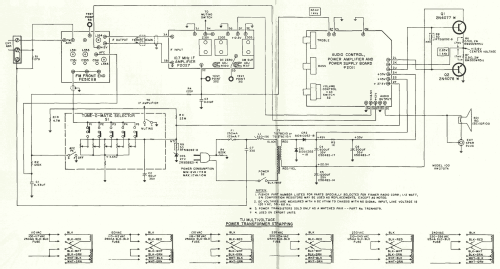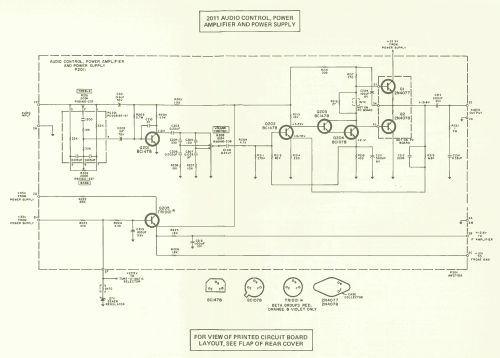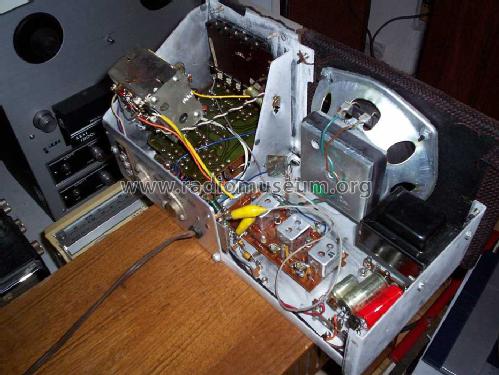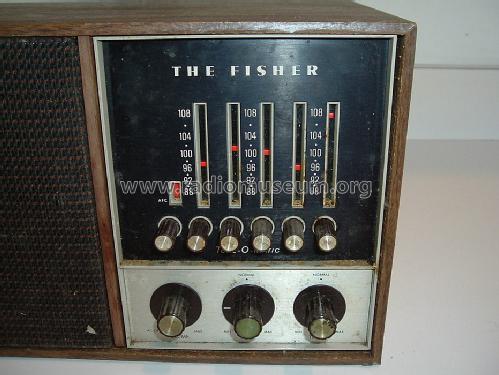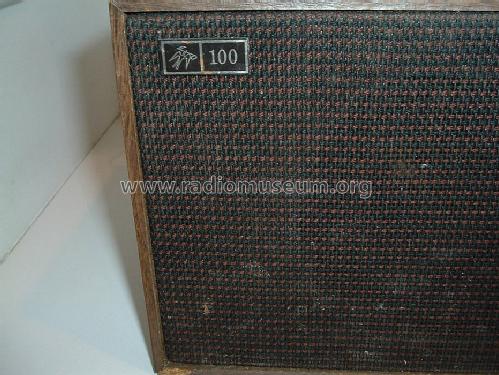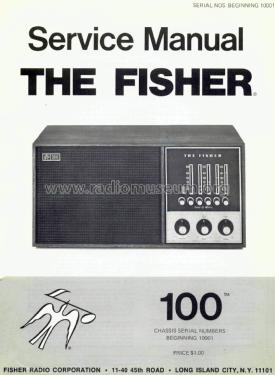- Land
- USA
- Hersteller / Marke
- Fisher Radio; New York (NY)
- Jahr
- 1970 ??
- Kategorie
- Rundfunkempfänger (Radio - oder Tuner nach WW2)
- Radiomuseum.org ID
- 128097
Klicken Sie auf den Schaltplanausschnitt, um diesen kostenlos als Dokument anzufordern.
- Anzahl Transistoren
- Halbleiter vorhanden.
- Halbleiter
- Hauptprinzip
- Superhet allgemein
- Wellenbereiche
- UKW-Gerät bzw. FM (keine weiteren Bänder).
- Betriebsart / Volt
- Wechselstromspeisung / 120 Volt
- Lautsprecher
- Dynamischer LS, keine Erregerspule (permanentdynamisch)
- Material
- Gerät mit Holzgehäuse
- von Radiomuseum.org
- Modell: 100 - Fisher Radio; New York NY
- Form
- Tischgerät ohne Drucktasten, bis 35 cm Breite (Kleingerät, meist dekorativ. Nur für Netzbetrieb, doch Transportgriff möglich).
- Bemerkung
- 5 tunable push-buttons, AFC, ext. speaker RCA jack.
- Datenherkunft
- -- Collector info (Sammler)
- Autor
- Modellseite von einem Mitglied aus A angelegt. Siehe bei "Änderungsvorschlag" für weitere Mitarbeit.
- Weitere Modelle
-
Hier finden Sie 592 Modelle, davon 505 mit Bildern und 204 mit Schaltbildern.
Alle gelisteten Radios usw. von Fisher Radio; New York (NY)
Sammlungen
Das Modell 100 befindet sich in den Sammlungen folgender Mitglieder.
Forumsbeiträge zum Modell: Fisher Radio; New: 100
Threads: 2 | Posts: 11
good morning all.
i just received a fisher 100 microreceiver (small tabletop radio) with two exposed transistors mounted in the back, where they're accessible without removing the case -- an amperex 2N4077 and a 2N4078 "Germanium" transistors. they have twin prongs that plug into the back of the unit). i've lost my bass and treble controls. i don't have a schematic. i'm hoping that replacing these transistors might solve my tone-control problem. i'm getting plenty of good sound out of the speakers, even with these transistors unplugged. i'm getting no continuity between the prongs of both transistors. i just got this very impressive radio and am trying to determine what has happened to the tone controls. i thought they worked when i received the radio, and i'm troubled that they've gone out so fast. can anyone please help?
thanks very much.
--charles jones
Charles Jones, 16.Oct.08
Also known as the Fisher Microreceiver 100.
Charles Jones, 15.Oct.08




